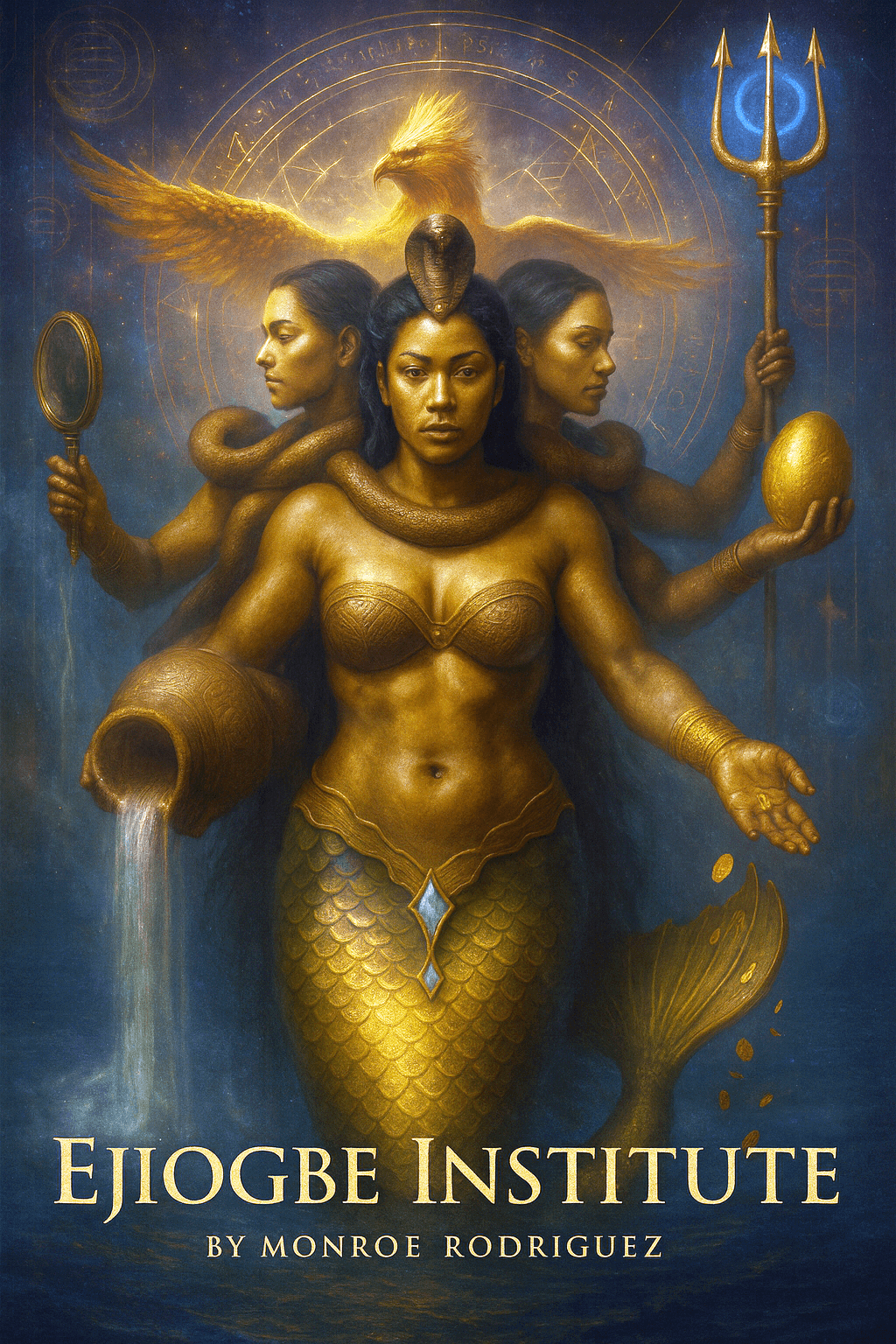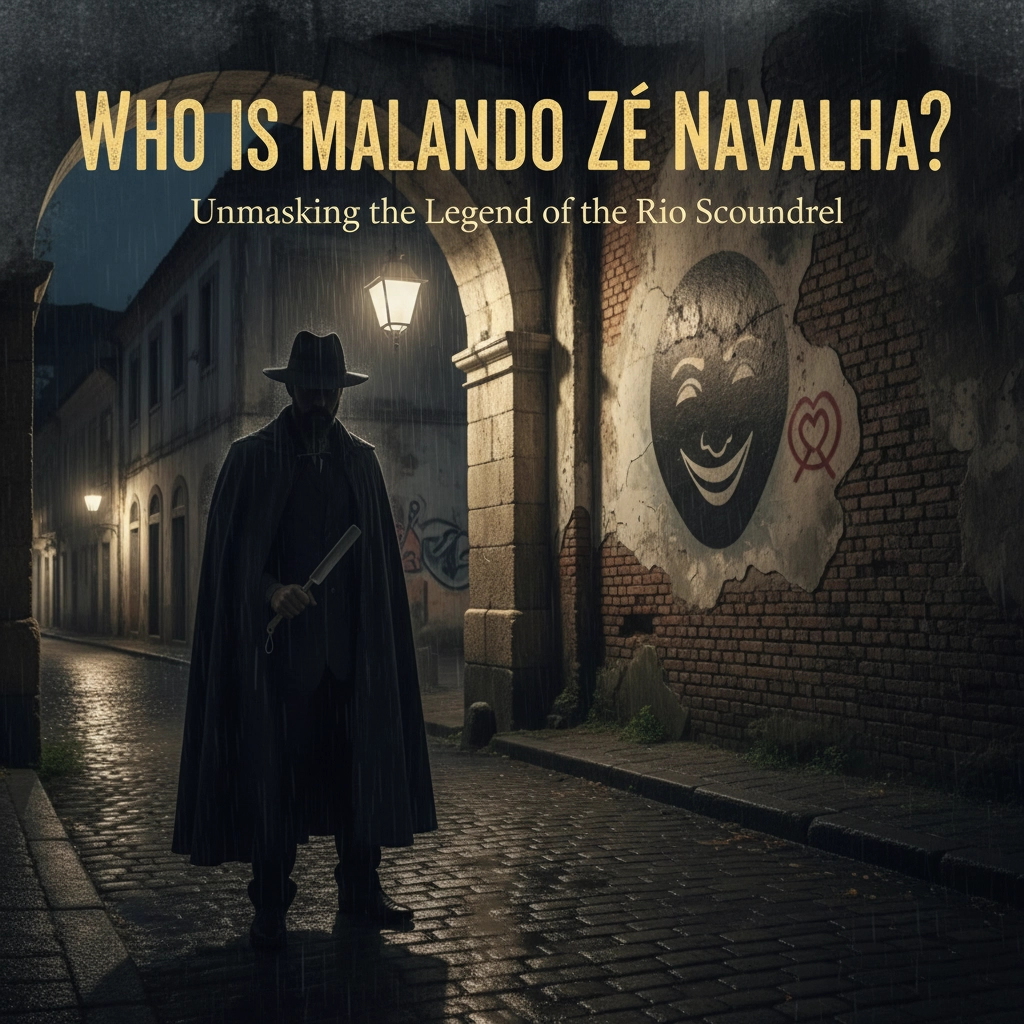The Street Philosopher Who Became a Legend
When the samba rhythms echoed through Rio's Lapa neighborhood in the early 1900s, one man walked those cobblestone streets with a razor blade in his pocket and honor in his heart. But this isn't just another tale of a Brazilian malandro: this is the story of José Francisco da Silva, better known as Zé Navalha, whose life and death transformed him from street legend into a powerful spiritual entity.
Many people think malandros were simply criminals or con artists. They're wrong. Zé Navalha embodied something far more profound: a philosophy of survival wrapped in dignity, a code of honor that protected the vulnerable while challenging the powerful. His story reveals how a man from the margins of society became a guardian spirit whose influence extends far beyond the streets where he once walked.

Born in the Heart of Bohemian Rio
The Lapa neighborhood of early 20th-century Rio de Janeiro pulsed with contradictions. Here, where samba was born and capoeira flourished, the wealthy mingled with the poor in cabarets and bars. It was in this vibrant, chaotic world that José Francisco da Silva came of age, absorbing the street wisdom that would define his legend.
Unlike the criminals who preyed on anyone with coins in their pockets, Zé Navalha developed an unshakeable moral compass. He witnessed the discrimination against hill dwellers, the contempt shown to Black people, and the way society discarded those without social position or pale skin. These observations shaped him into something unique: a malandro with a mission.
His intelligence and conversational skills quickly made him a respected figure in the neighborhood. People sought his advice, his protection, and his unique brand of street justice. But it wasn't his words that earned him his legendary nickname: it was his actions.
The Razor Blade That Defined a Legend
The transformation from José to "Zé Navalha" happened in a moment of violence that would define his entire legacy. During a confrontation in a Lapa bar, when cornered by adversaries, he revealed his hidden weapon: a razor blade concealed in his jacket. The precision and skill with which he defended himself didn't just save his life; it created a legend.
But here's where Zé Navalha's story diverges from typical street tales. That same razor blade that earned him fear and respect became an instrument of healing. He used it to treat wounds, perform cleansings, and provide medical care to those who couldn't afford doctors. The weapon of his defense became the tool of his service.
This duality: the capacity for both protection and healing: embodies the essence of what makes Zé Navalha such a powerful spiritual entity. He understood that true strength lies not in causing harm, but in knowing when and how to prevent it.

The Sacred Code of a Street Guardian
What separated Zé Navalha from ordinary criminals was his unwavering code of honor. He never stole from the poor, actively protected women and children, and made it his mission to help the elderly in his community. This wasn't occasional charity: it was his life's work.
He became known as the "Malandro da Navalha Sagrada" (Rogue of the Sacred Razor Blade), a title that perfectly captures his dual nature. Sacred and street-wise, dangerous and compassionate, feared by those who would harm the innocent and beloved by those who needed protection.
In the maze of Lapa's streets, Zé Navalha functioned as an unofficial guardian. He mediated disputes, protected the vulnerable, and challenged the corrupt. His presence alone was often enough to prevent violence or exploitation. Where official law enforcement failed or discriminated, Zé Navalha provided justice according to his own moral code.
Love, Betrayal, and a Promise That Transcends Death
Even legends have their vulnerabilities. For Zé Navalha, it was love. His relationship with Maria Flor, a woman who worked in one of Lapa's cabarets, revealed his tender side. But love in the underworld comes with dangers, and Zé Navalha's enemies used this connection against him.
Betrayed by corrupt officials who should have upheld justice, Zé Navalha found himself facing impossible odds. Yet true to his character, he confronted his betrayers directly, refusing to run or hide. This final act of courage would cost him his life but cement his transformation into something greater than mortal.
When he was killed in an ambush: his body never found: witnesses say he made a promise that would echo through generations: he swore to return. For those who understand the deeper mysteries of spiritual transformation, this wasn't an empty threat. It was a sacred vow.

From Street Legend to Spiritual Guardian
Death is often just the beginning for figures like Zé Navalha. His transition from historical person to spiritual entity represents something profound about Brazilian spiritual traditions: the recognition that extraordinary individuals can continue their protective work from beyond the physical realm.
In Afro-Brazilian religions like Umbanda and Candomblé, Zé Navalha is honored as a guide and protector. His story resonates because it embodies universal themes of justice, protection, and the defense of the vulnerable. Practitioners don't just remember his deeds; they call upon his continued presence and power.
This transformation from man to spirit reflects the democratic nature of Brazilian spirituality. You don't need to be born noble or wealthy to become a guardian entity. What matters is how you lived, how you treated others, and whether you left the world better than you found it.
The Modern Relevance of an Ancient Protection
Why does a malandro from early 20th-century Rio continue to captivate and inspire people today? Because the issues Zé Navalha fought against: discrimination, corruption, and the exploitation of the vulnerable: haven't disappeared. If anything, they've evolved into new forms that require the same kind of street-smart wisdom and moral courage he embodied.
Modern practitioners work with Zé Navalha's energy when facing injustice, when protecting their communities, or when they need the kind of practical wisdom that comes from understanding how the world really works. His energy teaches us that sometimes the most spiritual thing you can do is refuse to tolerate the mistreatment of others.
The razor blade that defined his legend becomes a metaphor for precision in spiritual work: the ability to cut through deception, protect what matters, and heal what has been wounded. These skills are as relevant today as they were in the streets of old Lapa.

Working with the Energy of Zé Navalha
Those who honor Zé Navalha don't seek him out for petty concerns or selfish gains. His energy responds to authentic needs for protection, justice, and the defense of community. He embodies the principle that true power serves others, not oneself.
His preferred offerings typically include items that reflect his earthly life and values: quality cigars, good cachaça, and red roses for his beloved Maria Flor. But more than material gifts, he appreciates actions that align with his code of honor: standing up for the defenseless, challenging corruption, and treating all people with basic dignity regardless of their social status.
Working with Zé Navalha's energy requires understanding that protection sometimes means confrontation. Not everyone needs this kind of fierce guardian energy, but for those facing serious injustice or threat, his presence can provide both practical wisdom and spiritual strength.
The Eternal Malandro
Zé Navalha's story challenges our assumptions about spirituality, morality, and power. He shows us that the sacred can emerge from the streets, that wisdom doesn't always wear respectable clothes, and that sometimes the most spiritual response to injustice is dignified resistance.
His legend continues to grow because it speaks to something eternal in the human experience: the need for protectors who understand both the darkness and light in this world, who can navigate complexity without losing their moral compass, and who remember that true strength serves love, not power.
In a world that often feels divided between those who have given up on justice and those who have never understood its cost, Zé Navalha offers a third path: the way of the spiritual warrior who fights not for conquest, but for protection, not for gain, but for honor.
The razor blade gleams still, not as a threat, but as a promise: that somewhere, in the spaces between worlds, the malandro with the sacred blade continues his eternal patrol, watching over those who need him most.



